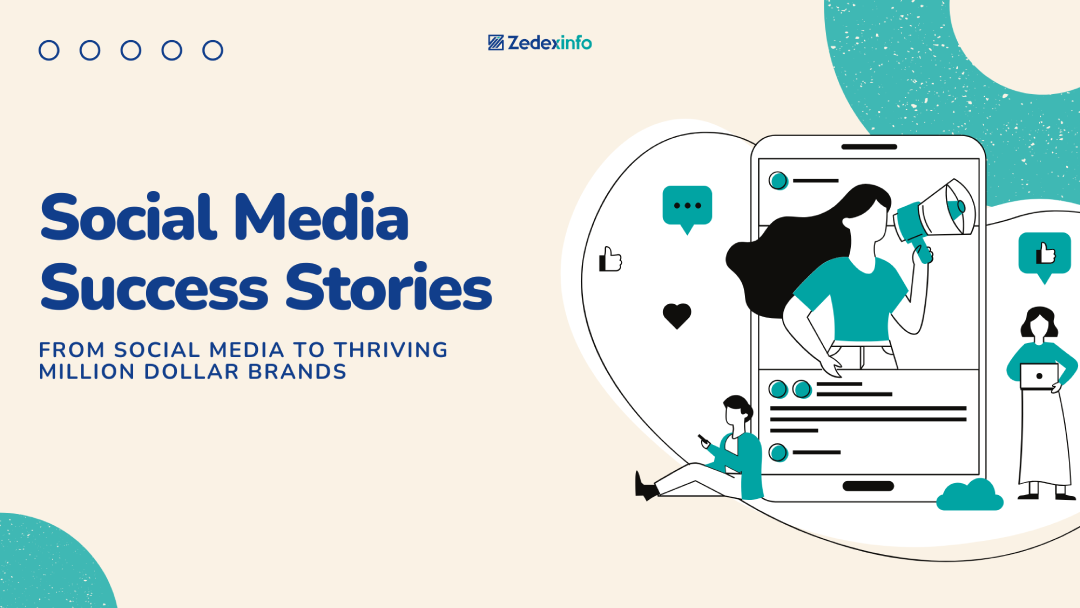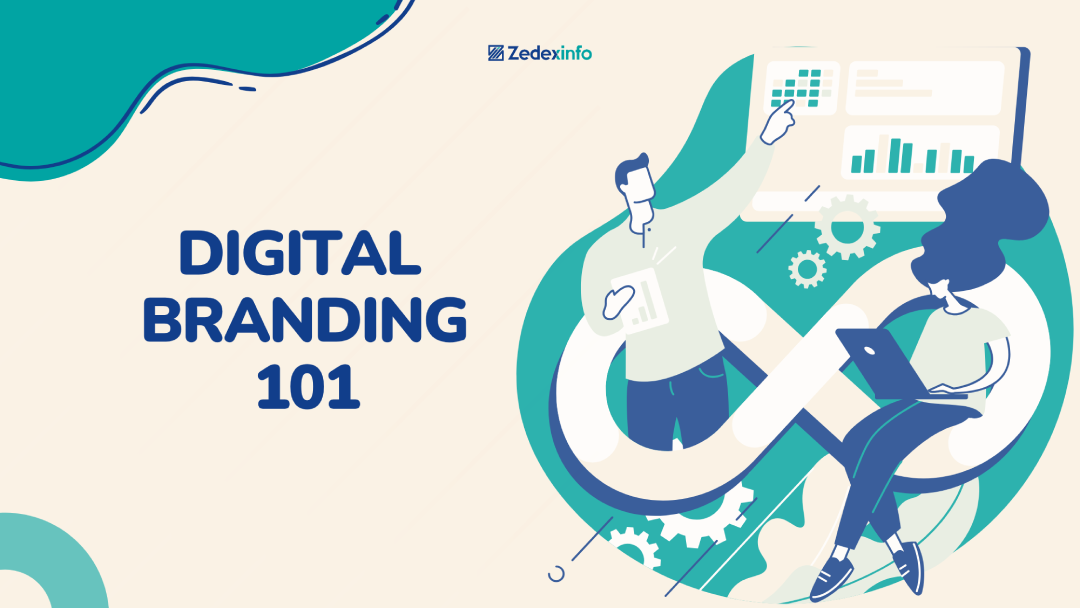Unless you’ve been living under a rock, you’ve probably come across influencer promotions or campaign-based advertisements almost one in every ten reels. In recent years, social media has turned into a marketing and business powerhouse for small to giant enterprises. The platform provides millions of active users that interact with content on a daily basis. This helps brands to drive engagement, visibility, credibility, and business growth.
Here, we’ve gathered a few inspiring stories of brands that started from scratch on social media and skyrocketed to success. These stories are a testament to resilience, creativity, and hard work, proving that with the right strategy, social media can be a powerful tool for business growth.
Beauty & Personal Care
Sugar Cosmetics:
Sugar cosmetics was founded by Vineetha Singh and Kaushik Mukherjee in 2015, as an innovative and initiative approach to the gap in Indian skin care brands. The D2C (direct-to-consumer) beauty brand was a venture to cater Indian skin tone, cruelty-free products and an affordable option for top-quality products. While they focused on online sales before expanding to offline stores today, it has grown into one of India’s top makeup brands.
They are generating revenues over 505 billion Indian rupees (2024), a 20% hike from previous year. Valued at around ₹4,100 crore, Sugar embraced the social media wave early on. The brand truly harnessed every social site, Instagram, YouTube, and Facebook to engage beauty enthusiasts. They collaborated with influencers, made great campaigns and leveraged user-generated content to boost brand awareness. Sugar is now one of top Indian brand in beauty and personal care. As they continue to innovate and expand, Sugar remains a go-to brand for makeup enthusiasts seeking bold, cruelty-free, and affordable beauty solutions.
Mamaearth:
Mamaearth was founded in 2016 by Ghazal Alagh and Varun Alagh with a vision of creating toxin free, beauty and personal care products. The brands mission was to create safe, sustainable, and affordable products and introduced natural, eco-friendly solutions tailored to Indian consumers. The D2C brand soon gained popularity through its strong social media presence and continued to connect with their target audience. Mamaearth strategically partnered with influencers and content creators, created UGC and infotainment contents to amplify its reach. From micro-influencers to well-known celebrities, the brand collaborated with individuals who aligned with its ethos. Their campaigns with #MamaearthCares and #GoodnessInside went viral drawing attention towards their brand.
Today, Mamaearth is a household name reaching a value of US $14.31 billion in 2024. Due to their innovative products and strategic marketing, they can create a strong online presence and a growing offline retail footprint. The brand’s success is a testament to its ability to adapt to changing consumer preferences and market trends. Through its loyal consumer and advocates Mamaearth continues to lead the Indian market.
Beardo:
In 2015, recognizing a massive gap in the men’s grooming industry, Beardo was founded by Ashutosh Valani and Priyank Shah. The brand emerged to make premium products that caters to the modern Indian men. Their ethos was to break stereotypes and give men’s grooming a new definition. Beardo’s success stems from its innovative social media strategy. They leveraged social media platforms to connect with their audience through bold, humorous, and relatable content. Their marketing campaigns like #FearTheBeard and #BeardoMan became the talk of the town.
Their products range from high-quality beard oils to wash and hair care products. Started as an online brand, today it has reached a valuation of over ₹173.2 crore in 2024 reflecting 62.4% growth from the previous year. The brand remains a leader in India’s evolving male grooming segment, setting new trends with its premium yet affordable offerings.
Minimalist:
Minimalist was created to revolutionize the skin care industry by offering simple, science-backed, and minimal yet effective solutions. Founded by the siblings Mohit Yadav and Rahul Yadav in 2020, the brand was an instant hit for its honest and no-gimmick products. Their products were formulated with high-quality, active ingredients and address specific skin concerns, such as acne, pigmentation, and aging, while being gentle and suitable for all skin types. In January 2025, Hindustan Unilever (HUL) acquired a 90.5% stake in Minimalist for Rs 2,955 crore. Minimalist continues to grow, challenging traditional skincare norms with its no-nonsense, results-driven philosophy.
Bellavita:
After its launch in 2018, Bellavita quickly became a leading name in India’s beauty and personal care industry. Its founder Aakash Anand, observing a potential in organic products, started the brand from his family-run salon in Gurugram. By 2022, Bella Vita had crossed ₹100 crore in annual revenue, fueled by a strong digital presence and strategic D2C marketing. In 2023, they expanded their retail presence with more than 500 offline stores and currently have valuation of $161 million, competing with giants like Nykaa and Mamaearth. 70% of its sales come from online, demonstrating its effective marketing strategy using influencers and UGC content. Its success lies in product innovation, customer trust, and aggressive e-commerce strategies, making it one of India’s fastest-growing beauty brands.
Health & Wellness
Manmatters:
Launched under Mosaic Wellness, Manmatters deals in men’s health, wellness, and grooming needs. Unlike the traditional approach, it used teleconsultations, doctor-backed treatments, and community-driven solutions to make the brand more approachable and unique among its targeted audience. The brand invested heavily in digital marketing, using influencers, social media ads, and data-driven targeting to reach the right audience. Within two years, over 1 million customers trusted Man Matters, and its revenue skyrocketed, securing $24 million in funding for expansion.
Cure.fit:
When Mukesh Bansal and Ankit Nagori launched Cure.fit in 2016, they aimed to make fitness accessible, engaging, and holistic. Instead of just offering gym memberships, they built Cult.fit, a chain of high-energy fitness centers. They also introduced Mind.fit (mental wellness), Eat.fit (healthy meals), and Care.fit (medical consultations). This tech-driven approach, combined with AI-powered virtual workouts, helped Cure.fit scale rapidly. By 2023, it had expanded to 130+ locations, and acquired competitors like TREAD and Fitternity, making it India’s leading fitness-tech brand. Today, Cure.fit is a leading name in the health and wellness industry, empowering millions to lead healthier, happier lives.
Moms.co:
When it comes to baby product, India has a potential market with a few competitions and recognizing the gap husband-wife duo Malika and Mohit Sadani started a safe skincare for moms and babies. 100% toxin-free, natural products, including skincare for moms, baby care essentials, and maternity wellness the brand-built a loyal customer base of over 2 million within 4 years of their launch. In 2021, the brand’s success caught the attention of The Good Glamm Group, leading to a ₹500 crore ($67M) acquisition. The brand’s success lies in its strong digital presence, transparent communication, and customer-first approach. By leveraging social media platforms and collaborating with parenting influencers, The Moms Co. has built a trusted community of mothers.
Lifestyle & Apparel
The Souled Store:
Street style came to India in early 20s and made a huge statement in fashion industry. To address this constant change in fashion and to cater for the GenZ audience, Souled Store was launched in 2013 by Vedang Patel, Harsh Lal, and others. Initially it was a hub for pop culture fans, bringing officially merchandise licensed products from Marvel, DC, Disney, and TV shows like FRIENDS.
With a strong social media presence, fashionable wearables, influencer collaboration, and meme-driven engagement they created a niche for themselves in the fashion industry. In 2024 the company was valued at approximately Rs 225 crore (US $ 27 million) building an empire for fashion enthusiasts.
Chumbak:
From gifts, furniture to bags and watches, Chumbak brought vibrant, quirky, and uniquely Indian designs to everyday products. The brand started as a souvenir line but quickly expanded into a full-fledged lifestyle brand but continues to grow in several niches. Its bold patterns, whimsical motifs, and a touch of nostalgia resonate with the aesthetics many were looking for. With its “made in India” approach, strong offline and online presence have earned it a loyal following. As of February 2025, the valuation of Chumbak is $88.9 million and has plans to grow Rs500 crores by 2025. Chumbak currently have exclusive stores across 11 cities in India, including Delhi, Mumbai, Bangalore, Hyderabad, Chennai, Kochi, and Jaipur.
Urban Monkey:
Urban Monkey was launched by Yash Gaganwal in 2017 to cater to the growing demand for hip-hop-inspired fashion and accessories. From snapbacks to oversized fits, the brand quickly became the go-to for India’s underground music and skating communities. Urban Monkey leveraged Instagram marketing, celebrity endorsements (including Ranveer Singh), and influencer collaborations to grow its cult-like following. By 2023, the brand had crossed ₹50 crore ($6 million) in revenue, proving that street culture had a firm place in India’s fashion scene.
Libas:
As modern Indian women began seeking ethnic wear with a contemporary touch, Libas emerged as a brand that seamlessly fused comfort, affordability, and trend-forward designs. Launched as an online-first brand, Libas leveraged e-commerce platforms like Myntra, Amazon, and Flipkart to reach a wide audience. Their strategy included aggressive digital marketing, influencer collaborations, and high-quality yet affordable pricing, making ethnic fashion accessible to all. By 2024, Libas had crossed ₹500 crore in revenue, becoming a leading name in ethnic wear. With continuous innovation and a deep understanding of evolving fashion trends, Libas continues to redefine Indian ethnic wear for the modern generation.
Technology & Electronics
boAt:
boAt became one of the top brands that gained a massive cult following and became one of the dominating names in electronics and technology. Launched in 2016 by Aman Gupta and Sameer Mehta, the brand offers fashion-forward, durable, and budget-friendly products like wireless earphones, smartwatches, and speakers. boAt’s success came from aggressive influencer marketing, celebrity endorsements by Hardik Pandya and Kiara Advani, and a strong digital-first approach. The brand captured the youth market with its tagline “Plug into Nirvana” and continued to bring out innovation and sleek designs. Today the company is valued at ₹11,500 Crores, with an annual revenue of INR 3,118 cr.
Noise:
Initially started as a brand dealing in phone cases, Noise pivoted to smartwatches and wireless earbuds, building a Rs4000 crore wearable brand. Amit Khatri and Gaurav Khatri catering to the growing demands for affordable yet feature-packed wearables and tapped into the booming market. The brand’s sleek designs, long battery life, and budget-friendly pricing helped it stand out in a competitive market. By 2024, Noise had built a ₹4,000 crore ($480 million) wearable empire, consistently ranking as India’s #1 smartwatch brand with a significant market share. Its commitment to innovation, AI-driven health tracking, and sustainability continues to fuel its success, making it a leader in India’s growing tech-accessory space.
Noise partnered with Bollywood stars, cricketers, and fitness influencers to create buzz around its products. They choose fan favorites like Rishab Pant and Taapsee Panu to tap into the wearable industry.
Services & Food & Beverage
Oyo:
In 2013, a college student from a small city Rayagada, Odisha decided to make budget travel comfortable and reliable. In 2011 he created Oravel stays, aspired by Airbnb’s concept and soon it transformed into India’s largest hotel chain. Social media played a huge role in its growth. Influencer collaborations, customer testimonials, and humor-driven content helped OYO connect with young travelers. By 2024, OYO had a presence in over 80 countries, with 157,000+ hotels under its brand. Despite ups and downs, its affordable, tech-first approach continues to redefine the hospitality industry. Today, Oyo operates in 800 cities in more than 80 countries making Ritesh, the founder, world’s youngest self-made billionaire.
Zomato:
What started as a small food review blog in 2008, created by Deepinder Goyal and Pankaj Chaddha, soon transformed into Zomato, India’s leading food delivery and restaurant discovery platform. The idea was simple; they want to give people quick access to restaurant menus and reviews. As smartphones became common, Zomato pivoted to food delivery, connecting users to their favorite restaurants with just a tap.
Zomato’s social media games are bold, witty, and engaging. Their relatable tweets, savage replies, and meme marketing keep audiences hooked. By 2024, Zomato was valued at over $8 billion, delivering millions of meals daily across India. With a focus on sustainability and quick commerce, it’s shaping the future of food tech.
Swiggy:
Swiggy was born in 2014 when three friends, Sriharsha Majety, Nandan Reddy, and Rahul Jaimini, saw the need for fast and reliable food delivery in India. Unlike its competitors, Swiggy built its own fleet of delivery executives, ensuring speed and efficiency.
Their #EatSure campaign, influencer partnerships, and hyper-local social media strategy made Swiggy a favorite among foodies. With the launch of Instamart, Swiggy expanded beyond food delivery, offering groceries and daily essentials in just minutes. By 2024, Swiggy had raised over $3.6 billion and delivered in more than 500 cities, proving that convenience is king.
Conclusion:
As social media continues to dominate its presence in our life, brands and businesses are leveraging it to stay on top of the competition. There are many such stories that used social media to gain followers and consumers with the right strategy and futuristic approach. In today’s digital world social media plays a significant role in the success of a brand. Whether it’s through relatable content, authentic storytelling, or innovative campaigns, social media has proven to be a critical factor in the growth and success of modern businesses, making it an indispensable part of their growth strategy.




